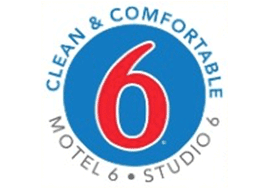Noise in commercial laundry rooms can be a real problem. The steady hum of dryers and the thuds from washers can create a challenging work environment. Excessive noise reduces productivity, shortens equipment lifespan, and impacts the customer experience.
At RJ Kool, we help businesses identify and control noise in their laundry spaces. Here’s how to reduce noise and create a more comfortable, productive environment.
Identifying the Sources of Noise in Commercial Laundry Rooms
Reducing noise starts with identifying its primary sources. In most commercial laundry settings, the loudest machines tend to be the dryers. While washers also contribute to sound, their impact is much lower unless they are actively in a spin cycle.
The Role of Dryers in Noise Production
Dryers are the number one contributor to noise in commercial laundry rooms. This is primarily due to their built-in fans and the mechanical motion required to tumble loads. The blowing air creates a constant hum that can be disruptive in a busy laundry facility.
Fortunately, the most effective way to control dryer noise is through strategic placement and enclosure. By containing dryers in a dedicated space, businesses can significantly cut down on overall noise levels.
Washers and Their Impact on Noise Levels
Unlike dryers, washers don’t produce constant noise. The loudest moments occur during the spin cycle, when the machine is running at high speed. Even then, the noise is typically less of a concern compared to dryers. However, if washers are not level or properly maintained, they may vibrate excessively, amplifying the noise they generate.
Effective Strategies to Reduce Noise in Your Laundry Room
1. Enclose Dryers to Contain Noise
One of the best ways to reduce dryer noise is to enclose them while ensuring proper airflow. The most effective approach is to box the dryers in, leaving only the front panels exposed. This setup not only dampens sound but also ensures proper air circulation, which is critical for dryer performance.
How to Enclose Dryers Effectively:
- Construct an Enclosure: Use plywood or sheetrock to create a structure around the sides and back of the dryers.
- Apply Sound-Deadening Materials: Adding soundproofing materials on the interior surfaces of the enclosure can further absorb noise.
- Ensure Proper Airflow: The enclosed space should allow unrestricted air intake from the outside, preventing overheating and maintaining efficiency.
- Secure and Maintain: Make sure the panels are properly installed and inspect them regularly to ensure they remain effective.
2. Optimize Washer Performance to Minimize Vibrations
While washers are generally quieter than dryers, excessive vibrations during the spin cycle can contribute to noise problems. Regular maintenance and proper installation can mitigate these issues.
Steps to Reduce Washer Noise:
- Level the Machines: Adjust the washer legs to ensure the machine sits evenly on the floor.
- Inspect Drum Bearings: Worn bearings can cause loud noises and should be replaced as needed.
- Secure Loose Components: Periodically check and tighten any loose bolts or screws.
3. Use Sound-Absorbing Materials
Another effective way to reduce overall noise in a commercial laundry room is by incorporating soundproofing materials. Some of the most beneficial options include:
- Acoustic Panels: Install these on walls and ceilings to absorb sound waves and reduce echo.
- Rubber Flooring: Use rubber mats or cork flooring to minimize noise caused by foot traffic and vibrations.
- Insulated Drywall: This specialized drywall helps contain sound within the laundry area, preventing noise from spreading to adjacent spaces.
4. Place Anti-Vibration Pads Under Machines
Anti-vibration pads are an easy and cost-effective solution for reducing washer and dryer noise. These pads help absorb vibrations before they transfer to the floor, preventing the noise from spreading.
Benefits of Anti-Vibration Pads:
- Reduce vibrations that amplify sound
- Improve the stability of machines
- Extend the lifespan of washers and dryers by minimizing excessive movement
5. Train Staff on Best Practices
Employees play a crucial role in maintaining a quieter laundry environment. By educating them on best practices, you can minimize unnecessary noise and extend the life of your equipment.
Training Topics for Employees:
- Proper Loading Techniques: Overloading washers and dryers can cause machines to shake more than normal.
- Regular Maintenance Checks: Encourage staff to report unusual noises early to prevent long-term damage.
- Safe and Efficient Operation: Following manufacturer guidelines can reduce excessive wear and tear on machines.
The Impact of Noise Reduction in Commercial Laundry Rooms
Lowering noise levels in your commercial laundry room isn’t just about comfort—it has practical business benefits, too. Here’s how noise reduction can improve your operations:
- Improved Work Environment: A quieter space allows employees to communicate more effectively and work more comfortably.
- Enhanced Customer Experience: If customers or guests are in the vicinity of your laundry room, a lower noise level creates a better atmosphere.
- Longer Equipment Lifespan: Proper maintenance and reduced vibrations help extend the life of your machines, saving you money in the long run.
- Regulatory Compliance: In some cases, keeping noise levels in check may help meet occupational safety standards.
In Summary
Reducing noise in commercial laundry rooms is essential for maintaining a productive and professional space. By enclosing dryers, maintaining washers, incorporating soundproofing materials, and training staff on best practices, you can create a significantly quieter environment.
At RJ Kool, we specialize in providing solutions for commercial laundry rooms. If you’re looking for expert assistance in designing a quieter, more efficient laundry facility, contact us today.











